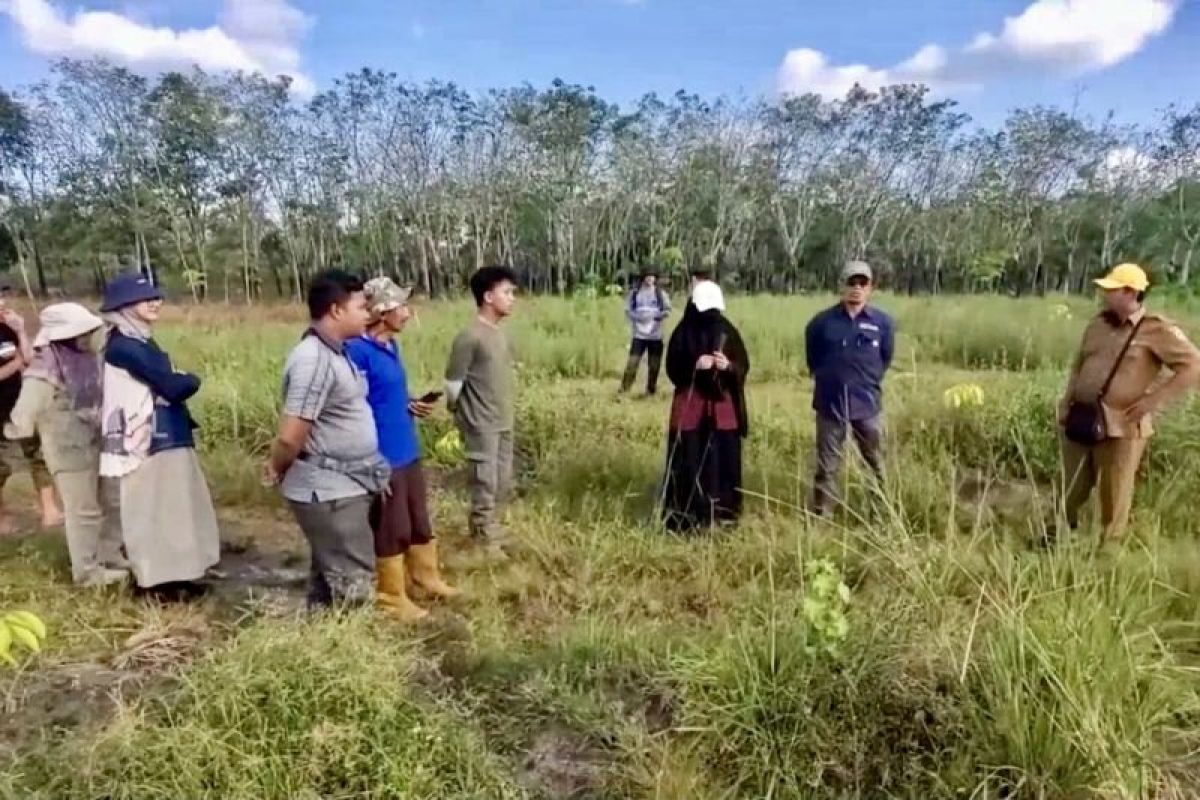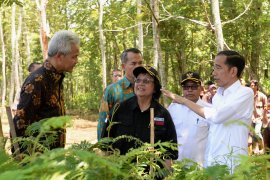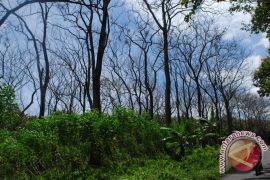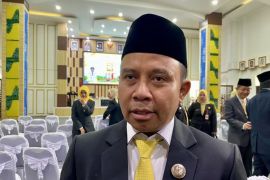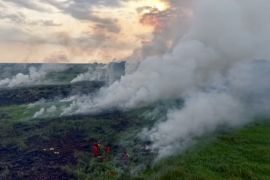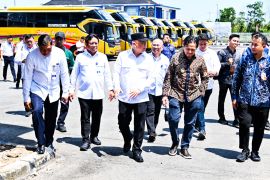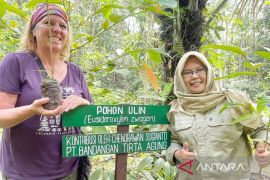"In general, in the two KTHs that have been reviewed, tree plant growth has been good," Project Leader of PMU POLU-NC1 (Norwegian Contribution 1), Arif Rusman Yamin, stated in Banjarbaru, Saturday.
On the first day, the FOLU team, accompanied by a communications specialist and a finance and administration specialist, reviewed the Berkat Sulasih KTH and the Bumi Sejahtera KTH located in Sungai Arfat Village, Banjar District.
The FOLU Team inspected the planting area, which had been managed since October 14, 2024. Norwegian Ambassador to Indonesia Rut Kruger Giverin and former minister of environment and forestry (LHK) Siti Nurbaya were also present during the visit.
Furthermore, the FOLU team also reviewed several other KTHs for the next few days to ensure that all planting locations under the FOLU Net Sink Program, funded by Norway and the central government, deliver results and benefits for the local community.
"For Berkat Sulasih KTH, the average tree growth is good; rambutan trees have reached 20-25 centimeters and mango trees are more striking, growing up to 70 centimeters," Yamin remarked.
However, he assessed that obstacles are still faced by the KTH that must be overcome promptly due to the lack of water for irrigation.
He suggested that the KTH requires special attention regarding water supply and requested that the South Kalimantan Forestry Service construct a drilled well, which the FOLU team will support and follow up on promptly.
Regarding Bumi Sejahtera KTH, the FOLU team hopes that the farmer groups would improve management, especially for rubber trees.
He encouraged farmer groups to not only focus on planting but also consider next steps when the harvest season arrives, such as collecting and selling the produce to factories.
Likewise, for fruit yields, Yamin advised KTH to establish partnerships with offtakers or buyers for fruits produced through the FOLU Net Sink Program.
"The results of the interim review showed about 75 percent of the plants are growing well, and we hope that tree growth will reach over 90 percent of all existing plants," Yamin remarked.
Meanwhile, Agus Suparno, a representative of Bumi Sejahtera KTH, expressed gratitude to the FOLU team for monitoring the activities conducted by the farmer groups at the location.
"We planted rubber, and the growth was quite good. Hopefully, in the future, it will be successful, so that we have additional economic income," Suparno remarked.
"We ask for guidance and direction from the South Kalimantan Forestry Service and the Forestry Ministry so that the results are optimal," he added.
Related news: Indonesia introduces its carbon trading potential to Japan
Related news: Indonesia develops carbon trading mechanism for FOLU sector
Related news: Indonesia, UK discuss cooperation for FOLU Net Sink strategy
Translator: Tumpal Andani Aritonang, Cindy Frishanti Octavia
Editor: Azis Kurmala
Copyright © ANTARA 2025
